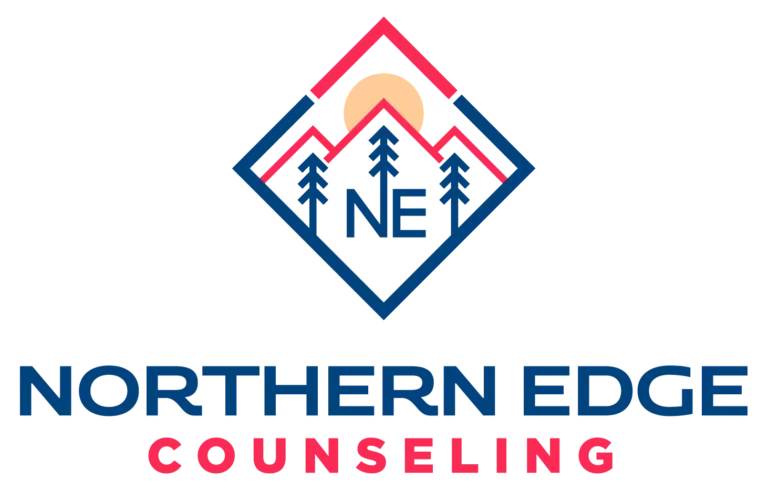If your life is a constant loop of:
- Having really solid intentions to do everything on your to-do list… but showing up to the end of day with nothing crossed off.
- The ever present: “Did I respond to that text or just think about responding?”
- Saying: “Damn. How is it already Wednesday?”
- Realizing that summer is half over and you still are trying to figure out your “summer schedule”.
…you’re not alone. In fact, it might not be you failing at adulting—it might be that adulting was never designed for your brain.
Why ADHD Can Make Everyday Life Feel Like an Extreme Sport
Most of us grow up hearing the same advice: Get organized. Stay motivated. Follow routines. Manage stress. But for people with Attention Deficit/Hyperactivity Disorder (ADHD), these “simple tips” don’t feel simple at all. Not because you’re failing—because your brain processes time, energy, and attention differently.
Here’s what “differently” might mean for you:
✅ Your executive function system is overloaded. Planning, sequencing tasks, remembering small details—all of it takes more energy than anyone sees.
✅ “Time” is… abstract. Whether it’s time blindness or hyperfocus rabbit holes, your relationship with time is complex. And no, another planner won’t fix it (sorry!).
✅ The emotional load is heavier. Many ADHD adults experience rejection sensitivity, perfectionism, and internalized shame for “falling short” of neurotypical expectations.
Myth Bust: ADHD Isn’t a Productivity Problem—It’s a Wiring Difference
Let’s be honest: ADHD is often misunderstood as a “focus problem” or a “productivity issue.” You’ve probably heard the jokes about being “scatterbrained” or “easily distracted.” But here’s the truth:
ADHD isn’t about being lazy or bad at adulting. It’s a neurodevelopmental condition that affects how your brain regulates itself—which touches way more than just attention.
Here’s what ADHD actually influences:
🔹 Emotional Regulation – Struggling with mood swings, frustration, or rejection sensitivity? That’s not just “being sensitive”—it’s a brain-based difficulty regulating big feelings.
🔹 Task Initiation (a.k.a. Getting Started) – It’s not that you don’t care about deadlines or goals. It’s that your executive functioning (task prioritization, starting, and sequencing) works differently—making initiation a major bottleneck.
🔹 Sensory Sensitivity – Loud noises, certain textures, bright lights, even chaotic environments—ADHD can come with heightened sensory experiences that sap energy and focus without you realizing it.
🔹 Energy Regulation – Ever feel like you swing between total inertia and hyperfocus marathons? ADHD impacts arousal levels, meaning your energy can feel all over the place day to day. Read: swinging from total inertia and hyperfocus marathons.
🔹 Attention Variability (Not Deficit) – ADHD doesn’t mean “no attention.” It means inconsistent attention. You might hyperfocus on some things, while your brain refuses to engage with others, even if they’re important.
ADHD isn’t a character flaw. It’s a difference in how your brain processes the world. And when you understand the real mechanics at play, you can build strategies that actually make sense for your brain—instead of forcing yourself into systems that were never built with you in mind.
👉Related: This post on why another checklist isn’t the answer you’re looking for.
One Insight That Changes Everything:
If you find yourself “holding it together” at work, only to collapse at home… there is high potential that it’s not because you just lack resilience. It could be because you’re masking—spending mental energy filtering, adapting, performing. And if we’re spending loads and loads of time masking just to get through the day, you can bet your bottom dollar that burnout isn’t far behind.
This is why many ADHD adults:
- Do well in some environments and flounder in others
- Feel like they’re “two different people” depending on the day
- Experience high-functioning burnout (and don’t realize it)
A Compassionate Reframe: Start with Curiosity, Not Criticism
One of the hardest parts of living with ADHD (or honestly, just being human) is the endless loop of self-judgment. The internal script sounds something like “Why can’t I just be more disciplined?”, or “Why do I keep messing this up?”, or the famous “Other people make it look so easy…what’s wrong with me?”.
But here’s the thing: harsh self-criticism or comparison rarely leads to meaningful change. More often, it fuels shame—and shame tends to shut down the very motivation and momentum you’re trying to build. Yikesies.
Self-compassion isn’t about “letting yourself off the hook.” It’s about recognizing what’s actually going on beneath the surface… so you can work with yourself, not against yourself. If I’ve peaked your interest, here are few questions you could experiment with to explore this further:
✏️ Instead of “I really need to pull it together, how do I get more disciplined?”
👉 Try: “Where do things feel effortless—or at least easier—what about me/my situation changes when I’m feeling this?”
✏️ Instead of “Why am I so f&*#ing inconsistent?”
👉 Try: “When I feel most capable or clear-headed—what is different about how I’m showing up and taking care of myself?”
Small shifts in language can lead to big shifts in awareness. Because it’s not about forcing your brain to “behave”—it’s about listening to it, understanding it, and creating systems that actually fit you.
Relearning Adulting on ADHD Terms
At Northern Edge, we talk a lot about building scaffolding—systems that work with your wiring instead of forcing you into rigid productivity culture.
That means:
- Building flexible routines—not rigid schedules
- Using movement and sensory strategies to stay grounded
- Getting curious about your nervous system signals instead of ignoring them
- Learning what your version of rest actually looks like
We also believe healing happens through validating your lived experience—not “fixing” it. (And yeah, sometimes it looks like a good laugh about all the tabs open in your brain).
If you’re feeling ready to explore more I have a couple of options for you. You can browse topics like neurodivergence or ADHD-specific reflections on our blog. Or if you’re curious about what therapy could look like with your unique brain, you can meet our clinicians here.
Final Note
If you don’t take anything else from this post, please leave knowing the following 4 things:
You don’t have to fix yourself to function.
You don’t have to earn rest by doing more.
You are absolutely not failing.
We have your back, if you need or want the support.






